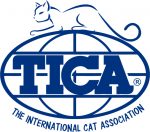Genetic Testing
Coppermine Ragdoll parents are tested to ensure they are negative for the following common diseases
Hypertrophic cardiomyopathy (HCM) is the most common heart condition in cats, with familial (inherited) forms of the disease having been recognised in a number of breeds. The disease in cats is assumed to be similar to the disease in humans, where currently 4341 have been shown to cause HCM. Ragdolls are amongst breeds with the highest rates of disease due to HCM. HCM causes abnormal thickening of the heart muscle, and this means that the heart cannot function properly.
Thickening of the ventricle of the heart leads to muscle stiffness and less effective contraction. Blood tends to become “backed up” through the atrium and into the veins of the lungs. Eventually this leads to leakage of fluid into the air spaces, which is called pulmonary oedema. When this happens, the cat has congestive heart failure. As well as congestive heart failure, HCM can lead to arrhythmias (abnormal heart rhythms) and sometimes this can cause sudden death without any prior clinical signs being seen.
HCM can occur at any age, although is more often seen in adult to middle aged cats. The exception is in the ragdoll, where it is common to see heart failure by 2 – 3 years of age. There is no cure for HCM.
Polycystic kidney disease (PKD) is an inherited disease that affects the kidneys. PKD is thought to be the most prevalent inherited disease in cats, however it is believed that this prevalence is now decreasing due to the availability of a genetic test for the disease and concerted efforts by breeders to reduce the prevalence of the disease amongst their breeding stock.
PKD causes the formation of cysts within the kidney. Initially these cysts are very small, but they increase in size over time, and when they become very large they squeeze against and damage the normal kidney tissue, leading to kidney failure. The rate that the cysts enlarge varies between individuals, and also can vary in the one cat at different times. It is the size of the cysts that determines the degree of illness caused by the PKD. Most cats develop kidney failure between 3 – 10 years of age, with the average age being 7 years. Severely affected cats may develop kidney failure earlier than this, while some cats may have small cysts in their kidneys that never become large enough to cause renal failure.
The only treatment available for PKD is kidney transplant, which is of limited availability at the current time.

